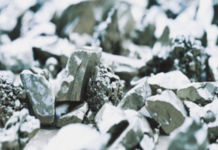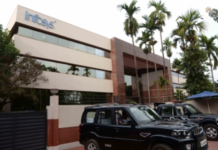By Aroonim Bhuyan
New Delhi– Time was when Sweden was best known in this country for the pop group ABBA, luxury carmaker Volvo and the Nobel prize.
Today, 160 companies have invested over $1 billion in India and directly employ 150,000 people — and the Scandinavian nation is participating in India’s Smart Cities project by offering sustainable mobility solutions, the country’s top envoy here has said.
“Swedish companies are participating in India’s sustainable urban development projects,” Swedish Ambassador Harald Sandberg told IANS here. “Volvo is offering a bus rapid transport system through electrical mobility.”
In this connection, he mentioned Scania, another Swedish firm that manufactures buses and trucks that run on alternative fuels. Sandberg said that a plant to produce alternative fuel was also being set up in Nagpur.
As for employment opportunities created by Swedish investments, he said telecom major Ericsson itself employed more people in India than anywhere else in the world.
His comments came ahead of the 10th edition of the Sweden India Nobel Memorial Week starting from October 1.
The annual event showcases the sustainability and innovations of Sweden and Swedish companies and comprises events ranging from seminars and panel discussions to competitions for students and cultural performances.
These events are being held across Indore, Pune, Bengaluru, Hyderabad, Chennai, Mumbai, Ahmedabad, Bhubaneswar, Kolkata, Guwahati and New Delhi.
Ambassador Sandberg said that the highlight of this year’s Nobel Memorial Week will be the visit of Swedish Minister for Policy Coordination and Energy Ibrahim Baylan who will meet Minister of State for Power, New and Renewable Energy and Coal Piyush Goyal.
The Sweden India Nobel Memorial Week is held in memory of Swedish innovator and philanthropist Alfred Nobel to celebrate Indian Nobel laureates and is organised in cooperation with leading Swedish companies in India.
The theme for the 10th edition of the Week is “Sweden Makes in India”, including sustainability and innovation.
“The Nobel Week is a great platform to strengthen cooperation and deepen relations between the two countries. India and Sweden do share common basic values and interests and, at the same time, we see a great potential to take inspiration from each other and expand our cooperation across a range of sectors,” Sandberg said.
He said that Swedish companies have been “Making in India” for long and also referred to the visit of Swedish Prime Minister Stefan Lofven to Mumbai this February for the Make in India Week.
Asked about Swedish furniture manufacturing major Ikea’s plans for India, the Ambassador said that it would open its first outlet in Hyderabad “in the second half of 2017” — followed by outlets in Mumbai, the National Capital Region and Bengaluru.
Ikea has been in India for 28 years, sourcing many different products for its stores worldwide. It sources products worth about 315 million euros every year, aiming to doubling it in the next few years.
Stating that Sweden would participate in the Make in India programme in the defence sector too, Sandberg said: “Gripen participates under the Make in India umbrella through transfer of technology.”
Saab’s Gripen was a major contender when India originally sought to acquire 126 medium multi-role combat aircraft (MMRCA) before placing a truncated order for 36 Rafale fighters from France’s Dasault Aviation.
As for India-Sweden bilateral trade that stands at around $2.5 billion, Sandberg said that it was on the upswing.
“We are issuing 20,000 Schengen visas in a year and a large number of them are business visas,” he said.
A number of Indian IT, pharmaceutical and biotechnology companies have opened offices in Sweden and have employed a good number of local people. Among major Indian investors in Sweden are Aditya Birla Group, Wipro and Bharat Forge. (IANS)






